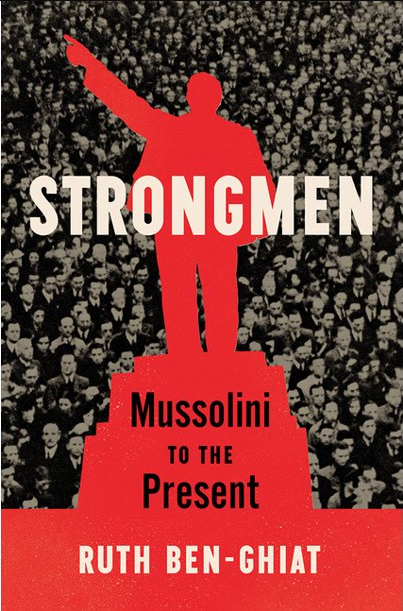“It was a confusion of ideas between him and one of the lions he was hunting in Kenya, that caused A. B. Spottsworth to make the obituary column. He thought the lion was dead, and the lion thought it wasn’t.” The author of these lines, P.G. Wodehouse, understood a thing or two about humour. Written seventy years ago, his wit sparkles on, undimmed.
The maestro also knew a thing or two about politics. This is strange, for few of his nearly one hundred novels, short stories or plays betray more than a nodding acquaintanceship with the great upheavals of the 20th century. Enquiring deeper, the connoisseur will find that his eternal creation, Jeeves — the discreet, silent, valet-cum-butler extraordinaire — was named in honour of a popular English cricketer who died on the Somme in 1916. The subject himself, in a post-1945 volume, admitted to his employer Bertie Wooster that he had “dabbled somewhat in the Commandos” during the Second World Conflagration.
War and turmoil are there, lurking in the background, if successfully banished from much of his writing. Sadly, Pelham Grenville (forenames he hated, so adopted the moniker “Plum” instead) was naïve. Loafing professionally in France when the Wehrmacht knocked on his door for tea and crumpets in 1940, he and his wife were interned as enemy aliens. In 1941, Plum agreed to record five broadcasts to the USA, then neutral. Entitled How to be an Internee without previous Training, they comprised playful anecdotes about his experiences as a prisoner of the folk in field grey. I’ve read them. They are rib-tickling and harmless, and his American readers lapped them up. Alas, his British fan club took a different view.
The devotees of Bertie Wooster, Reginald Jeeves, the Earl of Emsworth, Sir Roderick Glossop and Co. were at first stunned, then vexed and finally branded the poor author a traitor. Although a post-war MI5 investigation exonerated him, a hurt Wodehouse thereafter lived in exile on Long Island. Fortunately for us, the flow of humour continued unabated, but Plum’s hard-earned Knighthood for conjuring up the essence of Bottled Englishness was long delayed until the New Year’s Honours of 1975. He died soon after, on St Valentine’s Day, aged ninety-three.
This lapse of judgement was all the more extraordinary given his ability to spot a scoundrel at one hundred paces. Threats to the serene, ordered nature of English society in which he resided — indeed helped to create — were few. In Wodehouse’s Garden of Eden, there is a definite hierarchy of earls and aunts, bishops, baronets and young blades, stationmasters and policemen.
The majority of his tales are set in country houses, replete with conservatories, libraries, gun rooms, stables and butler’s pantries. Letters arrive by several posts a day, telegrams by the hour. Trains run on time from village stations. Other than the pinching of policemens’ helmets, there is order and serenity. Necklaces are filched, silverware is purloined, butlers snaffle port, chums are impersonated, romances develop in rose gardens, but nothing lurks to fundamentally reorder society.
Peter Caddick-Adams, “Coups and coronets”, The Critic, 2022-12-13.
March 20, 2023
QotD: The world of “Plum”
March 19, 2023
The Japanese Invade India! – WW2 – Week 238 – March 18, 1944
World War Two
Published 18 Mar 2023Operation U-Go, Renya Mutaguchi’s invasion of India, is in full swing this week, as his men aim at Imphal and Kohima; three Soviets Fronts batter their way through the Axis positions all over Ukraine; and there is a huge Allied bombing campaign at Cassino in Italy, which mistakenly kills a lot of Allied soldiers. That’s one busy week.
(more…)
Disagree with the Canadian government’s attempt to take over significant parts of the internet? Get ready for administrative punishment, citizens!
Michael Geist, who often seems like the only person paying close attention to the Canadian government’s growing authoritarian attitudes to Canadians’ internet usage, shows the utter hypocrisy of the feds demanding access to a vast array of private and corporate information on a two-week deadline, when it can take literally years for them to respond to a request for access to government information:

Senator Joe McCarthy would be in awe of the Canadian government’s audacious power grab.
Library of Congress photo via Wikimedia Commons.
The government plans to introduce a motion next week requiring Google and Facebook to turn over years of private third-party communication involving any Canadian regulation. The move represents more than just a remarkable escalation of its battle against the two tech companies for opposing Bill C-18 and considering blocking news sharing or linking in light of demands for hundreds of millions in payments. The motion – to be introduced by the Parliamentary Secretary to the Minister of Canadian Heritage (yes, that guy) – calls for a series of hearings on what it describes as “current and ongoing use of intimidation and subversion tactics to avoid regulation in Canada”. In the context of Bill C-18, those tactics amount to little more than making the business choice that Heritage Minister Pablo Rodriguez made clear was a function of his bill: if you link to content, you fall within the scope of the law and must pay. If you don’t link, you are out of scope.
While the same committee initially blocked Facebook from even appearing on Bill C-18 (Liberal MP Anthony Housefather said he was ready for clause-by-clause review after just four hearings and no Facebook invitation), bringing the companies to committee to investigate the implications of their plans is a reasonable approach. But the motion isn’t just about calling executives before committee to answer questions from what will no doubt be a hostile group of MPs. The same motion sweeps in the private communications of thousands of Canadians, which is a stunning disregard for privacy and which could have a dangerous chilling effect on public participation. Indeed, the intent seems fairly clear: guilt by association for anyone who dares to communicate with these companies with an attempt to undermine critics by casting doubt on their motivations. Note that this approach is only aimed at those that criticize government legislation. There has been a painfully obvious lobbying campaign in support of the bill within some Canadian media outlets, but there are no efforts to uncover potential bias or funding for those that speak out in favour of Bill C-18, Bill C-11, or other digital policy initiatives.
It is hard to overstate the broad scope of the disclosure demands. Canadian digital creators concerned with Bill C-11 who wrote to Youtube would find their correspondence disclosed to the committee. So would researchers who sought access to data from Google or Facebook on issues such as police access to social media records or anti-hate groups who contacted Facebook regarding the government’s online harms proposal for automated reports to law enforcement. Privacy advocates focused on how Google administers the right to be forgotten in Canada would ironically find their correspondence disclosed as would independent media sites that wrote to Facebook about the implications of Bill C-18.
Inside An M4 Sherman Tank With Historian James Holland
History Hit
Published 21 Nov 2022‘Inside An M4 Sherman Tank With Historian James Holland’
In this video, military historian James Holland gets inside the most iconic tank of the Second World War — the ubiquitous US M4 Sherman Tank.
With over 50,000 having produced between 1942 and 1945, the Sherman was the most widely used medium tank by the United States and Western Allies in World War II.
Easily produced, maintained and equipped with a 75mm gun as well as a single hatch-mounted .50 caliber machine gun (plus two lighter .30 cals positioned in the turret and forward hull), the Sherman proved extremely effective against soft targets. It still lacked the range and firepower of the German Panther and Tiger tanks, but its speed, manoeuvrability and fast rate of fire made it ideal wartime workhorse.
More recently, the M4 Sherman has risen to stardom with the release of Hollywood blockbuster Fury (2014), starring Brad Pitt and Shia LaBeouf.
(more…)
QotD: Are we re-enacting the “Crisis of the Third Century” or “Fall of the Roman Empire” this time?
At the risk of venturing too far into a field about which I know very little, there are two schools of thought about the collapse of the Roman Empire. One is that the Empire was a thoroughly rotten edifice by the late 4th century, and any little breeze would’ve sufficed to tip it over — pick any one of the events of the 4th century to designated as the tipping point, and everything else seems to be the collapse playing out. The other school, associated with Peter Heather — a very very badthinker, apparently — is that for all its problems the Empire could’ve staggered on pretty much indefinitely, had it not been hit with several overwhelming crises simultaneously … and even then, a lot more of the “Empire” survived than we generally credit, and that’s not including the Byzantines (who kept on keepin’ on for another thousand years).
Again, my knowledge of the topic is pretty weak, but y’all know that in general I believe inertia is one of the strongest forces in human affairs (just behind accident and error). What can’t continue, won’t … eventually, but there’s a lot of give in “can’t”. The “collapse” of the 5th century looked an awful lot like the “crisis” of the 3rd century, and not only did the Empire survive the third century crisis, in many ways it came back stronger than ever (one wonders what golden age might’ve been born had Aurelian lived).
It certainly does seem like we’re heading into a major crisis (yeah yeah, I know, thanks Nostradamus). Is it The End, or “merely” the Third Century Crisis? One wonders how it’s going down there in Brazil, and if there are any cagey young officers in the AINO Imperial Garrisons taking notes. The guys who grabbed the purple in the Third Century Crisis were called “the barracks emperors” for a reason, and we know (from the comments yesterday) that there are cabals of perverts alive and well in the officer corps.
2023 is shaping up to be really interesting. Ace of Grillers has done some reporting on the fossil fuel-intensive “Green” private jet flights of our beloved Transportation Secretary, Anal Pete. AOG thinks this is pretty obviously the butt bandit announcing his 2024 presidential run, and it’s hard to argue against it. Frankly I’m amazed Brandon has survived this long — is Dr. Jill that canny a political infighter, or is it just dumb luck that no one has felt the need to finish him off? — but it’s hard to see him making it too far into 2024. Veep Throat is of course running; we have yet to see Z Man’s predicted replacement of her with Gavin Hairgel, but I’m sure he’s in, too …
Frankly, I’m rooting for the Russians. You really want the wheels to come off, then start cheering for a big winter offensive from Ivan. Provided AINO doesn’t start cracking off nukes — a big, big IF — nothing would force the crisis like our “victory or death!” Juggalos getting their asses handed to them in the Donbas. The Z Man thinks they’ll pull a Ngo Dinh Diem on the Jewish Comedian here before too long; I wonder if they’ll even get the chance, or if it would matter if they did. I’m pretty sure Vlad’s done talking, if for no other reason than that he knows whatever faction of Juggalos he cuts a deal with will be betrayed by some other Juggalo faction. Unless the AINO peace proposals come written in the still-hot blood of a shitload of Kagans, he has zero reason to negotiate. And since The Media is still all in on their “total Ukrainian victory is just around the corner!” narrative …
Severian, “Friday Mailbag”, Founding Questions, 2022-12-16.
March 18, 2023
Tales of the Metaverse
Ted Gioia wonders if Metaverse is doing badly enough to seriously harm Facebook itself:
When Facebook changed it’s name to Meta back in 2021, I made a gloomy prediction:
“Meta is for losers,” I announced. “Mark Zuckerberg is betting his company on a new idea — but this is a wager he will almost certainly regret.”
I revisited the situation in December, and pointed out all the ways Meta wasn’t just dying in the metaverse. It was also ruining its base business, the Facebook platform.
The company kept making the same mistake as so many other aging websites — instead of serving users they want to control them. The end result is a seeming paradox: the more money the company spends, the worse the user experience becomes.
In the article, I gave a dozen examples — and after it was published many readers shared their own horror stories.
Here’s just one anecdote, out of many:
Try to sign up for Facebook Dating and then try to leave. They won’t let you. A friend of mine recently used it, and now is unable to remove herself totally from the feature. She was allowed to remove all of her pictures, however, she was not permitted to remove her dating profile and picture, which really distressed her. She didn’t want any record of it.
What a great concept. You can meet somebody special, fall in love, get married, and raise a family — but years later you’re still on the Facebook dating app.
It seems ridiculous. But Meta really, really doesn’t like you to opt out of features. Their dream is to operate a virtual Hotel California, where — as the lyrics warn, “you can check out any time you want, but you can never leave”.
Hey, maybe that’s why Mark Zuckerberg won’t let you have legs in his metaverse.
Why isn’t this bold new strategy working? It certainly isn’t for lack of investment. Meta is reportedly spending one billion dollars per month on the project.
But sometimes you can fail even with the right concept — simply because the technology just isn’t ready for the mass market.
[…]
A year-and-a-half after his corporate makeover, the situation at Meta is more dire than ever. Back in October 2021, Facebook shares were trading above $340, but now they are below $200 — that’s a loss of around $300 billion in market value.
But here again, the real problem is the user experience.
“On my initial visits, the metaverse seems sort of desolate, like an abandoned mall,” writes Paul Murray in New York magazine.
[…]
Mark Zuckerberg seems hellbent on pursuing an even more embarrassing fate. His bet on the metaverse may turn into the biggest cash sinkhole in the history of capitalism. Already the Edsel and New Coke look like tiny peccadilloes by comparison.
Even if he keeps his job, he may want to go hide. Fortunately, he has a huge metaverse at his disposal where that has become surprising easy to do.
“Strongmen” all run the same basic “playbook” says scholar
Chris Bray considers the arguments made by Ruth Ben-Ghiat that ropes every “strongman” together into a single, coherent strategy that applies at all times and under all circumstances:
Holocaust scholars have always argued from every possible perspective, and will always argue from every possible perspective, about causation. There’s a school gathered around “No Hitler, no Holocaust”, and there’s Zygmunt Bauman, who barely mentions the man in an argument about the inherently dehumanizing tendencies of the modern bureaucratic state. Christopher Browning depicts a battalion of Order Police participating in state-organized mass killing because of cowardice, habitual obedience, and social compliance; Daniel Goldhagen replies that no, Germans killed Jews because Germans hated Jews, full stop. But in this extraordinary diversity of voices, there is argument. If you ask, why did this happen?, many answers follow — growing out of questions about the operation of power, the limits of moral agency, the basic human willingness to comply, and so on, that aren’t easy to answer.
Then comes 21st century American political scholarship.
Here’s how the publisher explains this book:
Ruth Ben-Ghiat is the expert on the “strongman” playbook employed by authoritarian demagogues from Mussolini to Putin—enabling her to predict with uncanny accuracy the recent experience in America and Europe. In Strongmen, she lays bare the blueprint these leaders have followed over the past 100 years, and empowers us to recognize, resist, and prevent their disastrous rule in the future …
Vladimir Putin and Mobutu Sese Seko’s kleptocracies, Augusto Pinochet’s torture sites, Benito Mussolini and Muammar Gaddafi’s systems of sexual exploitation, and Silvio Berlusconi and Donald Trump’s relentless misinformation: all show how authoritarian rule, far from ensuring stability, is marked by destructive chaos.
All that stuff is the same, see, “from Mussolini to Putin”. Pinochet and Berlusconi are the same, Russia and Italy are the same, new postcolonial nations and old reborn nations are the same, resource economies and service economies are the same, 1922 is 2016, modern culture is postmodern culture, mass media is social media — all in a blended mass of social reality and cultural factors, turning the March on Rome and mean tweets into the same “playbook”, which is also the same “blueprint”.
What caused the Bolshevik revolution? Lenin said so. What caused the Holocaust? Hitler said so. Why was there political violence in Chile? Pinochet said so. You can see the richness and complexity of single-actor history with blueprints and playbooks.
Turning the urgent precision of this analysis to the task of understanding contemporary politics, scholars know that Trump’s personality is very bad, but is DeSantis more badderer in the badness of his mean and bad personality? Does he use the playbook, exactly like Lenin and Mobutu Sese Seko? Is he running Florida just like the Congo? (Is Kristi Noem precisely identical to Joe Stalin, Idi Amin, and Tiberius? Depends on how she does in the primaries.)
It’s politics without politics, stripped of systems, processes, principles, historical uniqueness, geographic and economic factors, and competing forces in culture and society. Political power is a weight falling off a table onto a lever; the leader acts, his instruments are acted upon, and the machine of society moves according to the force and direction applied by the leader. Is it significant that our particular political moment is postindustrial, urbanizing, and increasingly made up of social and economic interactions mediated through an electronic screen? No, Trump is using Lenin’s playbook. Politics is all the same, and entirely about names and personalities.
The US Adopts A Maxim: The Colt Model 1904
Forgotten Weapons
Published 9 Nov 2022The US Army spent nearly 16 years languidly testing the Maxim gun, but was never willing to actually make a decision until a final trial in 1903 finally settled the matter. The Maxim was deemed the best available machine gun and a contract was signed with Vickers, Sons, & Maxim to purchase 50 (later increased to 90). Eventually a total of 287 were procured; 90 from VSM and a further 197 made by Colt in the US. The first British guns were chambered for .30-03, with the Colts all made for the later .30-06 (and the VSM guns updated to that standard).
The Model 1904 was the heaviest Maxim gun ever made, weighing in at 62 pounds for the gun and another 80 for its tripod. Despite excellent reliability and durability, it was so heavy and unwieldy that it was pretty universally hated by American soldiers. The final order for 1904 Maxims was placed in 1908 and just the following year the M1909 Benet Mercie light Hotchkiss pattern was was adopted. By the time World War One arrived, half the Maxims had already been relegated to long-term storage. They were pulled out of the warehouses for training troops prior to their deployment to Europe, but they never saw any more significant military use.
(more…)
QotD: Experts outside their field of expertise
… just because someone is really smart and successful at A does not necessarily mean their opinion on B is worth squat. As always, as a consumer of opinions, caveat emptor should always be the watchwords.
The first time I really encountered this phenomenon (outside of obvious examples such as the political and economic opinions of Hollywood celebrities) was related to climate change. I don’t see them as often today, but for a while it used to be very common for letters to circulate in support of climate change science signed by hundreds or thousands of scientists.
The list of signatures was always impressive, but when you looked into it, there was a problem: few if any of the folks who signed had spent any time really looking at the details of climate science — they were busy happily studying subatomic particles or looking for dark energy in space. It turned out most of them had fallen for the climate alarmist marketing ploy that opposition to catastrophic man-made global warming theory was by people who were anti-science. And thus by signing the letter they weren’t saying they had looked into it all and confirmed the science looked good to them, they were merely saying they supported science.
When some of them looked into the details of climate science later, they were appalled. Many have reached the same general conclusions that I have, that CO2 is certainly causing some warming but the magnitude of that warming or in particular the magnitude and direction of its knock on effects like floods or droughts or tornadoes, is far from settled science.
So it is often the case that people who show strong support for ideas or people outside of their domain do so for reasons other than having made use of their expertise and experience to take a deep dive into the issues. Theranos is a great example from the business world. Elizabeth Holmes convinced a bunch of men (and they were mostly all men — women seemed to have more immunity to her BS) who were extraordinarily successful in their own domains (George Schultz, the Murdochs, Henry Kissinger, Larry Ellison) to become passionate believers in her vision. Which is fine, it was a lovely vision. But they spent zero time testing whether she could really do it, and worse, refused to countenance any reality checks about problems Theranos was facing because Holmes convinced them that critics were just bad-intentioned people representing nefarious interests who wanted her vision to fail.
Warren Meyer, “People Who Express Opinions Outside of their Domain Seldom Have Really Looked into it Much”, Coyote Blog, 2019-05-28.
March 17, 2023
Ukrainian, Yugoslav and Baltic Nazis? – ϟϟ Foreign Fighters Part 2
World War Two
Published 16 Mar 2023Across Europe, non-Germans are filling the ranks of Heinrich Himmler’s forces. These foreign fighters certainly don’t meet the racial standards of the SS but times are tough and the Reichsführer-SS needs warm bodies. So, does that mean Himmler’s given up on the idea of a Germanic master race? Not at all. And he uses all sorts of twisted esoteric logic to justify his latest moves.
(more…)
Beef & Guinness Stew – St. Patrick’s Day Special – Beef Stewed in Guinness Beer
Food Wishes
Published 15 Mar 2013Learn how to make a Beef & Guinness Stew! Go to http://foodwishes.blogspot.com/2013/0… for the ingredient amounts, more information, and many, many more video recipes! I hope you enjoy this St. Patrick’s Day Special Beef Stewed in Guinness Beer recipe!
From the comments:
Food Wishes
2 years ago
Check out the recipe: https://www.allrecipes.com/Recipe/234534/Beef-and-Guinness-Stew/
QotD: The unique nature of Roman Egypt
I’ve mentioned quite a few times here that Roman Egypt is a perplexing part of understanding the Roman Empire because on the one hand it provides a lot of really valuable evidence for daily life concerns (mortality, nuptiality, military pay, customs and tax systems, etc.) but on the other hand it is always very difficult to know to what degree that information can be generalized because Roman Egypt is such an atypical Roman province. So this week we’re going to look in quite general terms at what makes Egypt such an unusual place in the Roman world. As we’ll see, some of the ways in which Egypt is unusual are Roman creations, but many of them stretch back before the Roman period in Egypt or indeed before the Roman period anywhere.
[…]
… what makes Roman Egypt’s uniqueness so important is one of the unique things about it: Roman Egypt preserves a much larger slice of our evidence than any other place in the ancient world. This comes down to climate (as do most things); Egypt is a climatically extreme place. On the one hand, most of the country is desert and here I mean hard desert, with absolutely minuscule amounts of precipitation. On the other hand, the Nile River creates a fertile, at points almost lush, band cutting through the country running to the coast. The change between these two environments is extremely stark; it is, I have been told (I haven’t yet been to Egypt), entirely possible in many places to stand with one foot in the “green” and another foot in the hard desert.
That in turn matters because while Egypt was hardly the only arid region Rome controlled, it was the only place you were likely to find very many large settlements and lots of people living in such close proximity to such extremely arid environments (other large North African settlements tend to be coastal). And that in turn matters for preservation. When objects are deposited – lost, thrown away, carefully placed in a sanctuary, whatever – they begin to degrade. Organic objects (textile, leather, paper, wood) rot as microorganisms use them as food, while metal objects oxidize (that is, rust). Aridity arrests (at least somewhat) both processes. Consequently things survive from the Roman period (or indeed, from even more ancient periods) in Egypt that simply wouldn’t survive almost anywhere else.
By far the most important of those things is paper, particularly papyrus paper. The Romans actually had a number of writing solutions. For short-term documents, they used wax writing tablets, an ancient sort of “dry erase board” which could be scraped smooth to write a new text when needed; these only survive under very unusual circumstances. For more permanent documents, wood and papyrus were used. Wood tablets, such as those famously recovered from the Roman fort at Vindolanda, are fairly simple: thin wooden slats are smoothed so they can be written on with ink and a pen, creating a rigid but workable and cheap writing surface; when we find these tablets they have tended to be short documents like letters or temporary lists, presumably in part because storing lots of wood tablets would be hard so more serious records would go on the easier to store papyrus paper.
Papyrus paper was lighter, more portable, more storeable option. Papyrus paper is produced by taking the pith of the papyrus plant, which is sticky, and placing it in two layers at right angles to each other, before compressing (or crushing) those layers together to produce a single sheet, which is then dried, creating a sheet of paper (albeit a very fibery sort of paper). Papyrus paper originated in Egypt and the papyrus plant is native to Egypt, but by the Roman period we generally suppose papyrus paper to have been used widely over much of the Roman Empire; it is sometimes supposed that papyrus was cheaper and more commonly used in Egypt than elsewhere, but it is hard to be sure.
Now within the typical European and Mediterranean humidity, papyrus doesn’t last forever (unlike the parchment paper produced in the Middle Ages which was far more expensive but also lasts much longer); papyrus paper will degrade over anything from a few decades to a couple hundred years – the more humidity, the faster decay. Of course wood tablets and wax tablets fare no better. What that means is that in most parts of the Roman Empire, very little casual writing survives; what does survive were the sorts of important official documents which might be inscribed on stone (along with the literary works that were worth painstakingly copying over and over again by hand through the Middle Ages). But letters, receipts, tax returns, census records, shopping lists, school assignments – these sorts of documents were all written on less durable materials which don’t survive except in a few exceptional sites like Vindolanda.
Or Egypt. Not individual places in Egypt; pretty much the whole province.
In the extremely dry conditions of the Egyptian desert, papyrus can survive (albeit typically in damaged scraps rather than complete scrolls) from antiquity to the present. Now the coverage of these surviving papyri is not even. The Roman period is far better represented in the surviving papyri than the Ptolemaic period (much less the proceeding “late” period or the New Kingdom before that). It’s also not evenly distributed geographically; the Arsinoite nome (what is today el-Fayyum, an oasis basin to the West of the Nile) and the Oxyrhynchus nome (roughly in the middle of Egypt, on the Nile) are both substantially overrepresented, while the Nile Delta itself has fewer (but by no means zero) finds. Consequently, we need to be worried not only about the degree to which Egypt might be representative of the larger Roman world, but also the degree to which these two nomes (a nome is an administrative district within Egypt, we’ll talk about them more in a bit) are representative of Egypt. That’s complicated in turn by the fact that the Arsinoite nome is not a normal nome; extensive cultivation there only really begins under Ptolemaic rule, which raises questions about how typical it was. It also means we lack a really good trove of papyri from a nome in Lower Egypt proper (the northern part of the country, covering the delta of the Nile) which, because of its different terrain, we might imagine was in some ways different.
Nevertheless, it is difficult to overstate the value of the papyri we do recover from Egypt. Documents containing census and tax information can give us important clues about the structure of ancient households (revealing, for instance, a lot of complex composite households). Tax receipts (particularly for customs taxes) can illuminate a lot about how Roman customs taxes (portoria) were assessed and conducted. Military pay stubs from Roman Egypt also provide the foundation for our understanding of how Roman soldiers were paid, recording for instance, pay deductions for rations, clothes and gear. We also occasionally recover fragments of literary works that we know existed but which otherwise did not survive to the present. And there is so much of this material. Whereas new additions to the corpus of ancient literary texts are extremely infrequent (the last very long such text was the recovery of the Athenaion Polteia or Constitution of the Athenians, from a papyrus discovered in the Fayyum (of course), published in 1891), the quantity of unpublished papyri from Egypt remains vast and there is frankly a real shortage of trained Egyptologists who can work through and publish this material (to the point that the vast troves of unpublished material has created deeply unfortunate opportunities for theft and fraud).
And so that is the first way in which Egypt is unusual: we know a lot more about daily life in Roman Egypt, especially when it comes to affairs below the upper-tier of society. Recovered papyrological evidence makes petty government officials, regular soldiers, small farming households, affluent “middle class” families and so on much more visible to us. But of course that immediately raises debates over how typical those people we can see are, because we’d like to be able to generalize information we learn about small farmers or petty government officials more broadly around the empire, to use that information to “fill in” regions where the evidence just does not survive. But of course the rejoinder is natural to point out the ways in which Egypt may be unusual beyond merely the survival of evidence (to include the possibility that cheaper papyrus in Egypt may have meant that more things were committed to paper here than elsewhere).
Consequently the debate about how strange a place Roman Egypt was is also a fairly important and active area of scholarship. We can divide those arguments into two large categories: the way in which Roman rule itself in Egypt was unusual and the ways in which Egypt was a potentially unusual place in comparison to the rest of Roman world already.
Bret Devereaux, “Collections: Why Roman Egypt Was Such a Strange Province”, A Collection of Unmitigated Pedantry, 2022-12-02.
March 16, 2023
Once it was possible to be a fully fledged techno-optimist … but things have changed for the worse
Glenn Reynolds on how he “lost his religion” about the bright, shiny techno-future so many of us looked forward to:
Listening to that song reminded me of how much more overtly optimistic I was about technology and the future at the turn of the millennium. I realized that I’m somewhat less so now. But why? In truth, I think my more negative attitude has to do with people more than with the machines that Embrace the Machine characterizes as “children of our minds”. (I stole that line from Hans Moravec. Er, I mean it’s a “homage”.) But maybe there’s a connection there, between creators and creations.
It was easy to be optimistic in the 90s and at the turn of the millennium. The Soviet Union lost the Cold War, the Berlin Wall fell, and freedom and democracy and prosperity were on the march almost everywhere. Personal technology was booming, and its dark sides were not yet very apparent. (And the darker sides, like social media and smartphones, basically didn’t exist.)
And the tech companies, then, were run by people who looked very different from the people who run them now – even when, as in the case of Bill Gates, they were the same people. It’s easy to forget that Gates was once a rather libertarian figure, who boasted that Microsoft didn’t even have an office in Washington, DC. The Justice Department, via its Antitrust Division, punished him for that, and he has long since lost any libertarian inclinations, to put it mildly.
It’s a different world now. In the 1990s it seemed plausible that the work force of tech companies would rise up in revolt if their products were used for repression. In the 2020s, they rise up in revolt if they aren’t. Commercial tech products spy on you, censor you, and even stop you from doing things they disapprove of. Apple nowadays looks more like Big Brother than like a tool to smash Big Brother as presented in its famous 1984 commercial.
Silicon Valley itself is now a bastion of privilege, full of second- and third-generation tech people, rich Stanford alumni, and VC scions. It’s not a place that strives to open up society, but a place that wants to lock in the hierarchy, with itself on top. They’re pulling up the ladders just as fast as they can.










